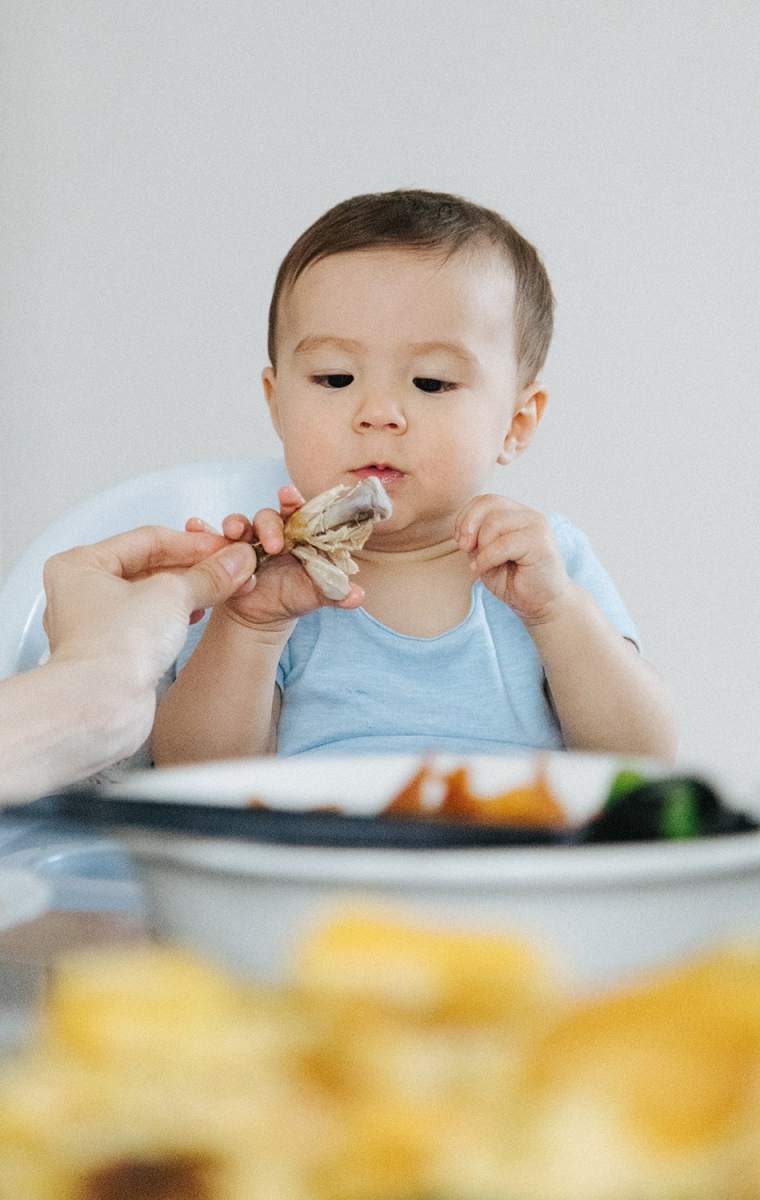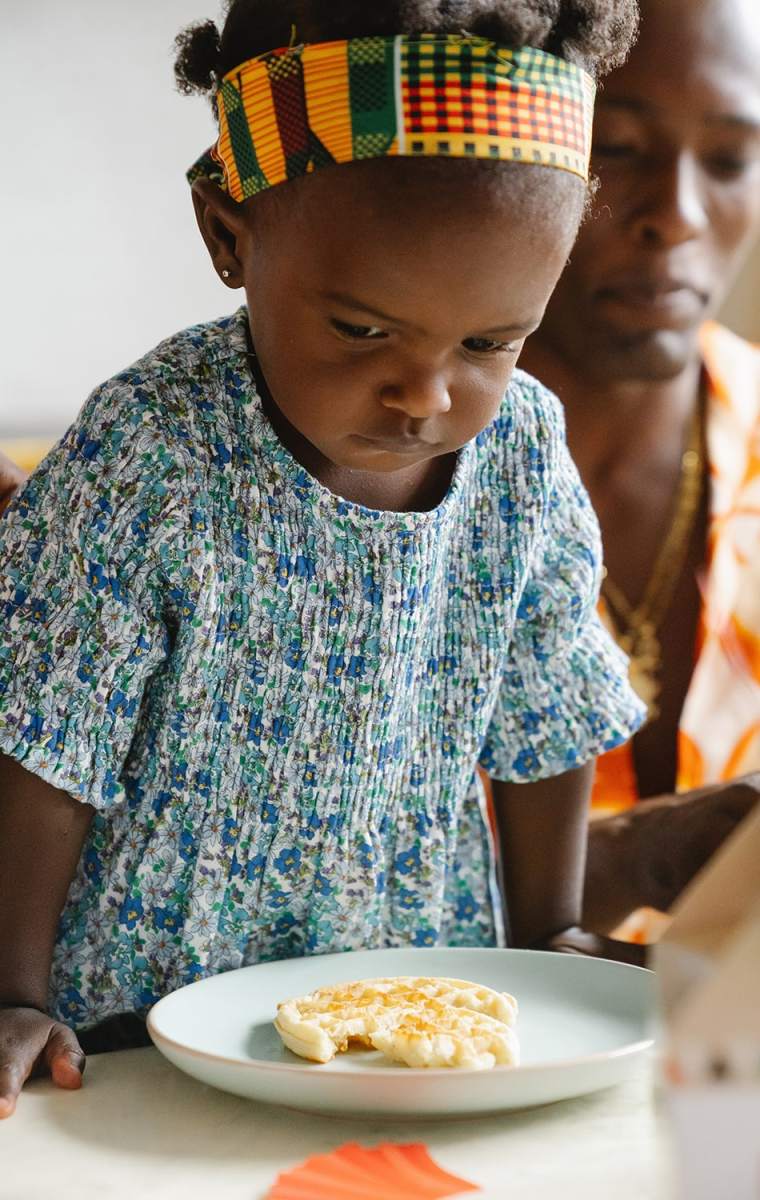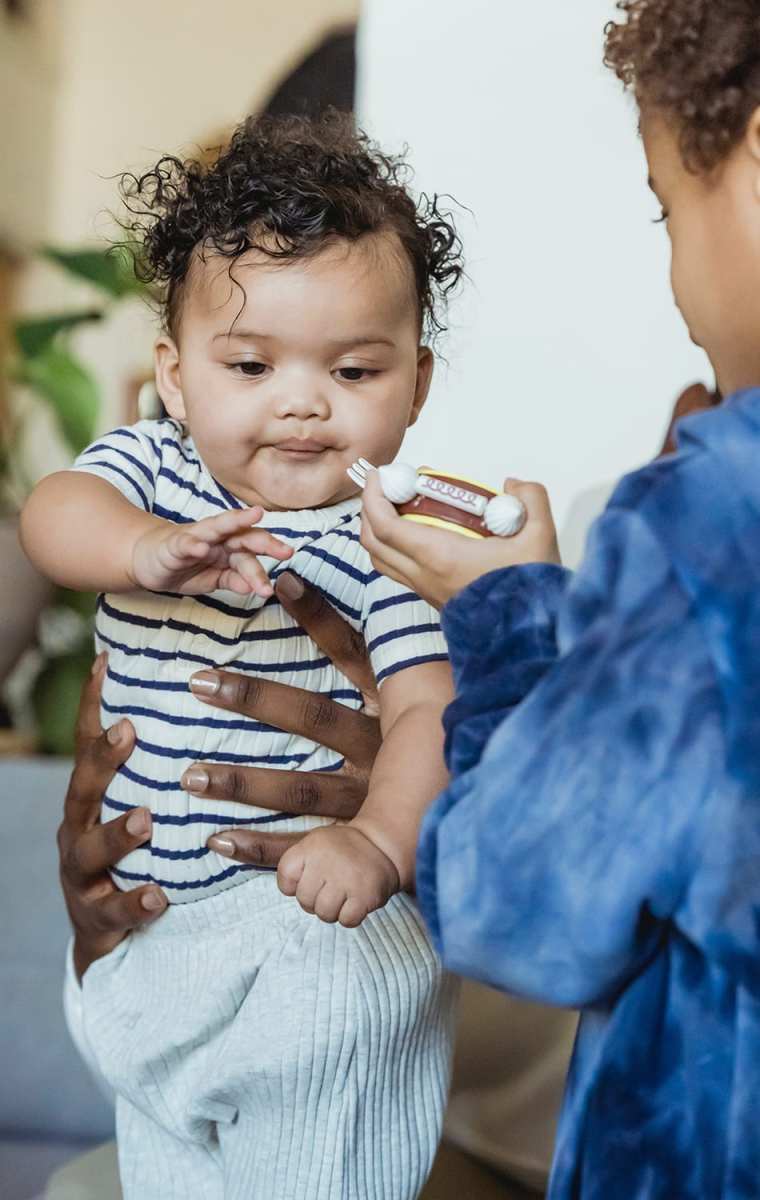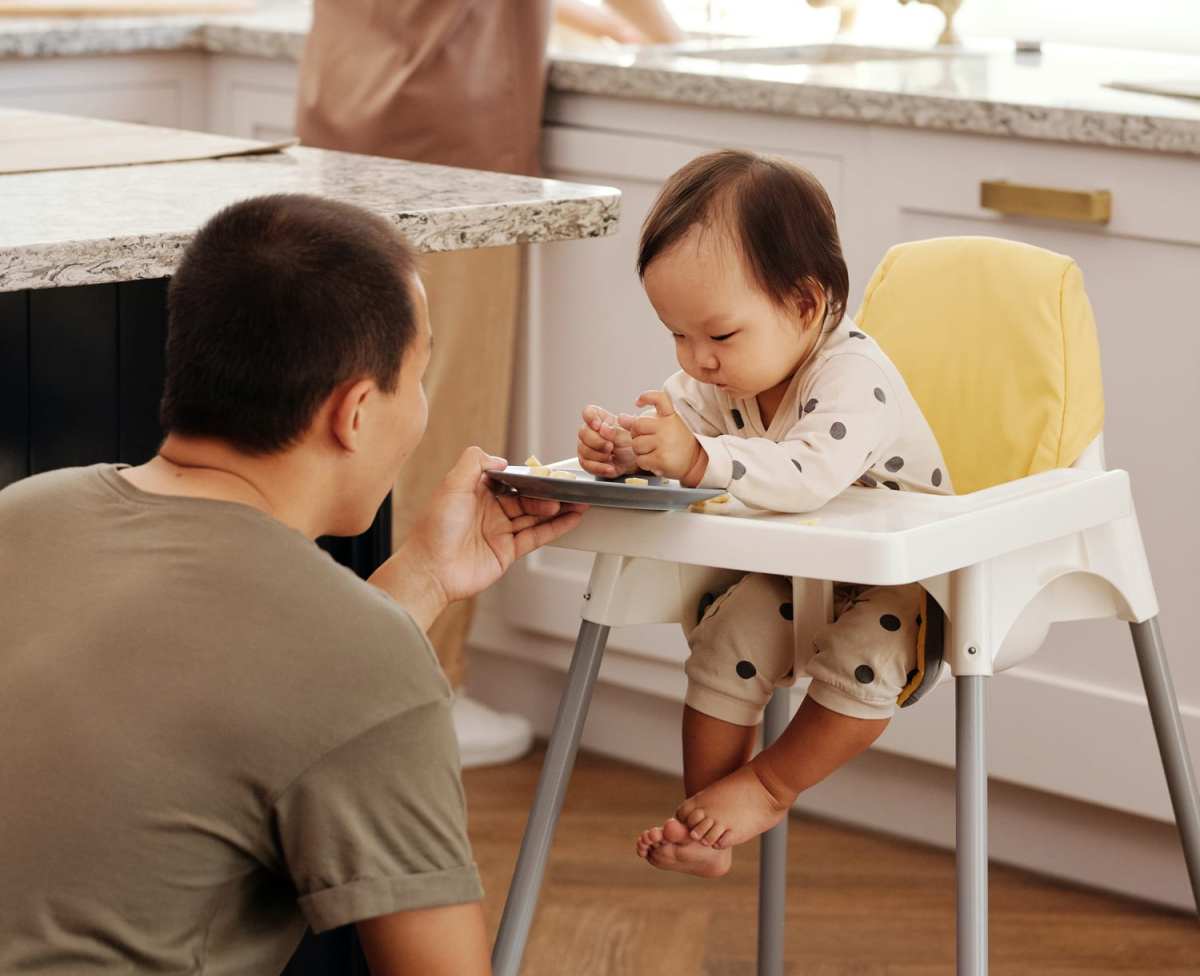Here’s What You Need To Know:
- A young child may need to be exposed to a new flavor a dozen or more times, before they learn to embrace it.
- Because growth spurts come and go, kids may not be as hungry. Do your best to be neutral and warm.
- Have a healthy relationship with food, try to ditch guilt from eating.
- Help kids learn about real food early and bring them into the process, whether it’s cooking or visiting a farmer’s market.
Squishy Sceptics
By age two, kids know how to articulate what they want. Especially, if what they want is a hearty plate of chicken nuggets and french fries. While this meal can be delicious, it is definitely not nutritious. Thankfully, there are ways to help children under 2 embrace real foods. Below is Shira Lenchewski’s advice on how to expand a child’s palette.




How does one raise a non-picky eater?
“The focus should be on helping kids have a healthy relationship with food. Kids need anywhere between 10 to 15 exposures to a new food before they feel really comfortable with it. It’s not because they will never eat that food, it’s just that change is really scary for them.”
What’s a common mistake parents make at mealtime?
“Kids go through periods when they are growing really rapidly— and periods when they are not growing as rapidly. When they are not growing as rapidly, they aren’t as hungry. But a lot of times, parents will (understandably) continue to push, and the kid will end up getting a lot of attention in the process for not eating. One of the very best and hardest things to do is to be both neutral and warm. That way mealtimes are less of a loaded thing.”
In what other ways do parents’ behavior influence a kid’s relationship with food?
“You are your kid’s biggest heroes. You are who they look up to, so they’re going to be looking at you for direction. Do you have a healthy relationship with food? The biggest gift you can give your kids is showing them that you love food and that it’s not wound up in emotions or guilt. It doesn’t mean you can’t have a pizza, but don’t be like “Ugh, I’m so mad about it.” We grow up associating food with rewards, you have a bad day and you think “Ok, I’m going to have some ice cream.” Or if you are a good girl, you will get pizza. It’s healthy to separate food from guilt or emotions.”
What are some of the best activities you can do with your kid?
“Bring them to the farmers market and bring them into the kitchen. From an early age, get them to play with the textures, colors, and smells of real food. As they get older, let them help you cook. Yes, it will be messy— but if you give them little jobs, like “put blueberries into the pancake batter,” or “close the refrigerator door”— they will feel really involved and the more involved they are, the more they will appreciate the food.”
Summary
Babies are known to be adventurous, but their curiosity often disappears once placed in a high chair. Almost 50% of parents would label their little one as “picky”. But there is good news. Research shows that the earlier you introduce your babe to a healthy food, the more likely they will eat it for the rest of their life.
We like to follow the motto “eat the rainbow”. As long as your baby’s diet includes a colorful variety of foods, they are less likely to be fussy at the dinner table.












